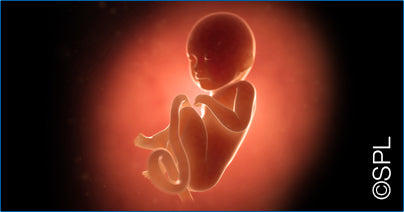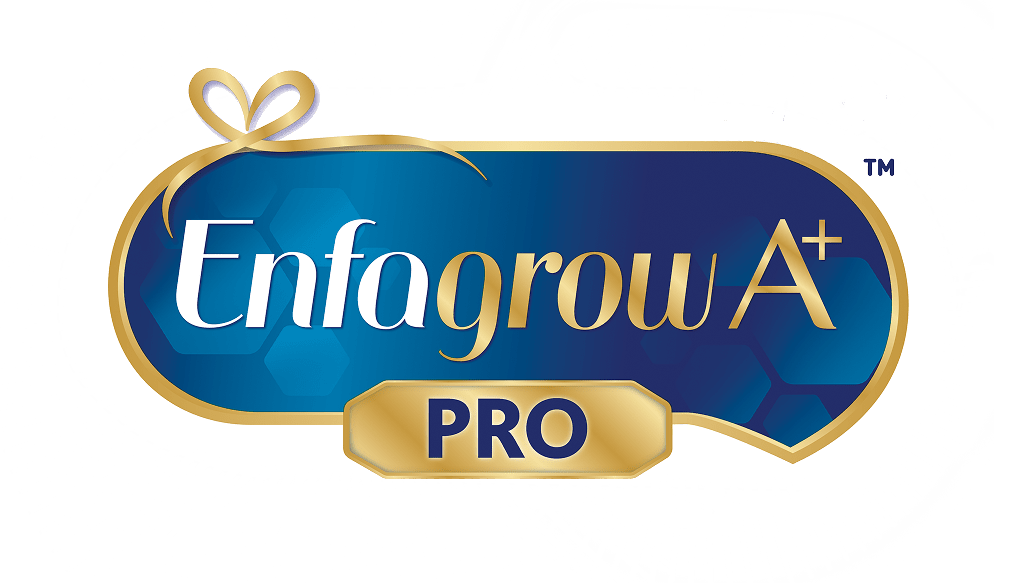
The long wait to meet your developing baby is nearly over now that you’re 8 months or 32 weeks pregnant. During this stretch of your last trimester, you will be passing on your antibodies to protect your baby from illnesses in the future. Your body will also be preparing to give birth. What changes will your body undergo? And what do you need to know about nutrition when you’re 8 months pregnant?
Common Symptoms When You’re 32 Weeks Pregnant

Pregnancy symptoms like fatigue and heartburn are likely to continue when you’re 8 months pregnant until you give birth1. Other symptoms like shortness of breath and urine leakage may also be apparent, both of which are associated with tightening of bladder muscles with Kegel exercises - a popular form of pregnancy exercise. This makes it even more important that you pay close attention to your nutrition and remain active, as a healthy lifestyle can help to fight fatigue.
Braxton-Hicks Contractions
Braxton-Hicks contractions, or practice contractions, will also continue when you’re 32 weeks pregnant. It’s important to keep a close watch on these contractions as there’s a chance that you may be experiencing preterm labour.
Remember, Braxton-Hicks contractions are mild and last between 30 seconds to 2 minutes and there is no rhythm to them. If you are experiencing contractions that increase in intensity and frequency, it may be preterm labour. Seek immediate care if you are experiencing labour, if you have vaginal bleeding, or if your water breaks1.
What Defense Against Disease Does Your Developing Baby Have?
Now that you’re 8 months pregnant, or in weeks 31 to 35 of your pregnancy, this is a critical time for you and your developing baby, as both of your bodies prepare for the birth. In particular, when you’re around 8 months or 32 weeks pregnant, you’ll be passing on antibodies in your blood to your developing baby.
These tiny gifts protect your baby from possible illnesses and infections they could face. This immunity does not last, and they will need to develop their own resistance to disease.
You can do more to give your developing baby's immunity. It's crucial to keep yourself nourished so that you can give them the nutrients they need to fight off illnesses in the future.
How Can You Support Your Baby’s Future Growth and Development?
Certain nutrients and supplements are essential to getting your developing baby off to the right start. And you can help their progress by consuming foods that contain these nutrients.
Folic acid is a key nutrient for the production and repair of DNA, and it also plays an important role in preventing birth defects2. Women can even take folic acid before conception to increase their chances of having a healthy pregnancy3!
To have a diet rich in folic acid, try to eat the following:
- beans
- legumes
- nuts
- dark green vegetables like spinach, broccoli and asparagus4
A multivitamin that contains folic acid can work towards preventing pregnancy-related complications5. Have a chat with your doctor on what multivitamin is suitable for you.
Did You Know?
Apart from the intake of crucial nutrients, your developing baby is also accumulating stores of fat, especially on their arms and legs. This will help them regulate their body temperature.
A Healthy Mother and Her Healthy Baby
Your body may face some discomfort towards the end of your third trimester but that doesn’t necessarily mean that your health and the health of your developing baby are compromised. Get adequate rest, engage in exercises like walking, and have a nutritious, well-balanced diet. To ease the discomfort of Braxton-Hicks contractions, try taking a warm bath or engage in gentle exercises6.
During the time you are 32 weeks pregnant and onwards, your developing baby’s activity in utero may decrease, but there’s no cause for worry. They are growing and gaining weight fast – at the rate of half a pound (200 grams) every week! Your developing baby isn’t so little anymore, and should now weigh around 5 pounds (2.2 kilograms). At this size, your baby is discovering they now have a lot less space in your womb to move around.
Your developing baby is working hard to develop the life skills they need through brain development. When you’re 32 weeks pregnant, their brain development is advancing rapidly. Your baby’s brain is establishing billions of complex connections that they will need so that they can breathe and swallow and thrive in the outside world.
You can continue to help your developing baby’s brain development in the following month before they arrive. Find out how in our guide to the final month of your pregnancy: Pregnancy Stages: Month 9.
It’s been quite a journey for both of you, yet it didn’t seem too long ago when your developing baby was still developing their sense of smell, just last month! They do grow up fast, don’t they? Click here for Pregnancy Stages: Month 7 to track how far both of you have come.
You should be proud of the progress that you and your developing baby have made! But looking forward, it's important to continue some of these pregnancy habits, such as eating well and consuming folic acid. The World Health Organization recommends that mothers continue to take folic acid supplementation up to 3 months after delivery.
Want to learn more about how your developing baby will develop over your pregnancy – plus, nutritional advice for you and your developing baby, online support and more? Sign up for Enfamama A+ Club to receive new articles, useful tips and rewards that can help you and your developing baby!
Expert Resource:
Dr. Raymond Choy Wai Mun
(MCR 18097A)
MBChB (UK), Aviation Medicine (Singapore)
REFERENCES:
- 32 Weeks Pregnant: Symptoms, Tips, and More, https://www.healthline.com/health/pregnancy/32-weeks-pregnant#call-the-doctor, Accessed 20 November 2020
- MedlinePlus, National Institutes of Health, http://www.nlm.nih.gov/medlineplus/druginfo/natural/1017.html, Accessed October 2015
- Folic Acid Helps Prevent Some Birth Defects, http://www.cdc.gov/features/folicacidbenefits/, Accessed October 2015
- MedlinePlus, National Institutes of Health, http://www.nlm.nih.gov/medlineplus/druginfo/natural/1017.html. Accessed October 2015
- Greenberg JA, Bell SJ, Guan Y, Yu Y. Folic Acid Supplementation and Pregnancy: More Than Just Neural Tube Defect Prevention. Reviews in Obstetrics and Gynecology. 2011;4(2):52-59
- Braxton Hicks, http://www.webmd.com/baby/guide/true-false-labor, Accessed October 2015



